Greek History pt. 2
1/53
There's no tags or description
Looks like no tags are added yet.
Name | Mastery | Learn | Test | Matching | Spaced |
|---|
No study sessions yet.
54 Terms
Xenophon, Oeconomicus
roles of men and women supported by hippocratic findings that it is from the gods, based on physical distinctions. (gynecology and humor theory)
metic
Described by Aristophanes as a foreigner that establishes residence in a city.
hetaerai
high class, educated escorts.
porne
prostitutes
Ancient Slavery
almost anyone was enslaved, often sourced from military conflict, piracy, or kidnapping. Freedom could be purchased. Considered property so couldn’t be ‘raped’ but killing them was illegal. expensive to purchase.
Hippocrates
father of medicine, sought natural causes for disease without dissection.
Focused work on humor theory which postulated that 4 liquids (blood, phlegm, yellow bile, and black bile) all need to be kept in balance.
Sophocles, Antigone
Creon was an illegitimate and Antigone refuses to obey his commands, the gods’ divine laws are more important
Aeschylus, Agamemnon
Clytemnestra murders Agamemnon for sacrificing their daughter, she upset the social order and was unduly violent.
Aristophanes, Frogs
Dionysos meets two women involved in commerce that he hadn’t paid. They call for Kleon to take vengeance on their behalf
Strabo, Geography
description of hetaerai (upper class slaves) at temple of Aphrodite
Aristotle, Politeia
defining what a slave is, nature of those who rule and those who are ruled
description of Athenian democracy
Thucydides, History of the Peloponnesian War
purpose of Delian league
writes with the intent that others will read and learn from it in the future
hopes is audience recognizes the cyclical nature of history
critical of memory and traditions
receives oral accounts and considers the effects of speeches to decide what he thinks would have been said to create such an effect.
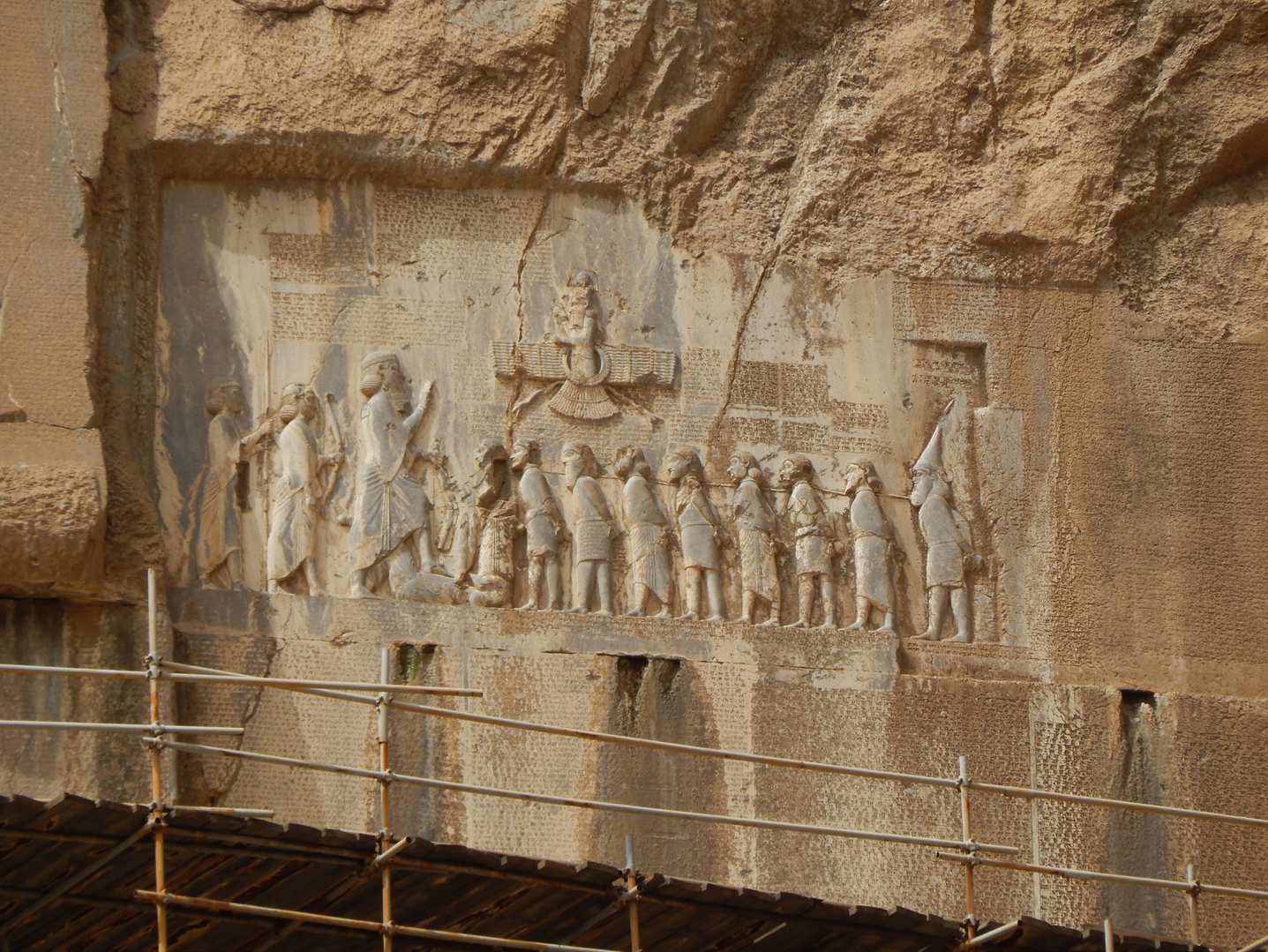
Behistun inscription commissioned by Darius to legitimize his rule.
Contains multiple languages.
commemorates his ascent to the throne in conquering “pretenders” who are now subservient.
has servant holding weapons
God Mazda approves
Ionian revolt
Herodotus, History shows this as a direct cause for conflict between East and West.
Taxation from Persians took money away from the region and tyrants were in charge.
Athenians burn down Sardis but are defeated at Ephesus
Greeks aren’t punished but reforms are made to create local democracies and promote intermarriage.
“Earth and Water” demanded by Persians but Athenians and Spartans refuse.
Persian religion
tolerant
worship Ahura Mazda and other gods
Cyrus
Founder of Persian Empire, conquest of Lydia (Ionia)
Darius
oversees the creation of the Behistun inscriptions
conquered Thrace and Macedonia
established satrapies, administrative regions
tolerance
efficient road system
Cuneiform
script used for many languges. One of many scripts found on Behistun Inscription
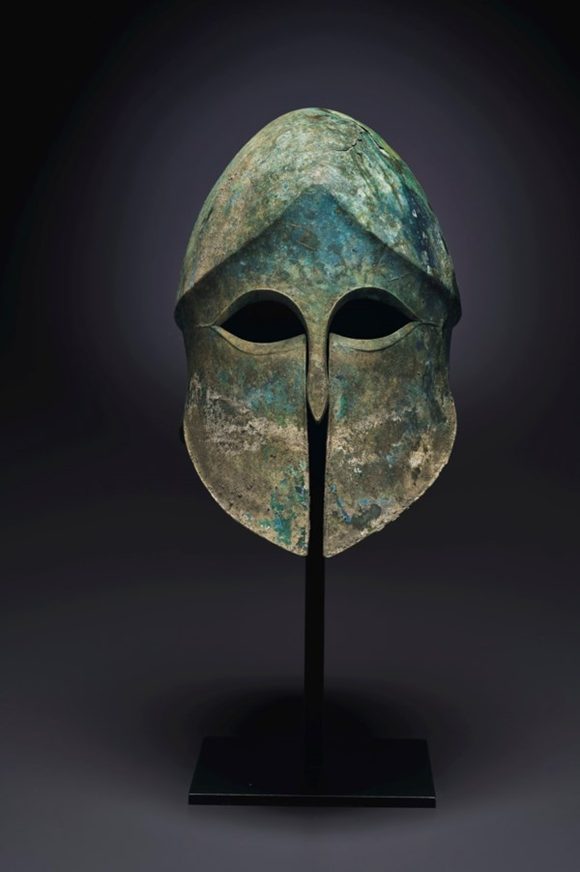
hoplite. this is an older Corinthian helmet.
hoplites were heavily armored, used a long spear and rounded shield. Greeks emphasized infantry warfare. used in the phalanx
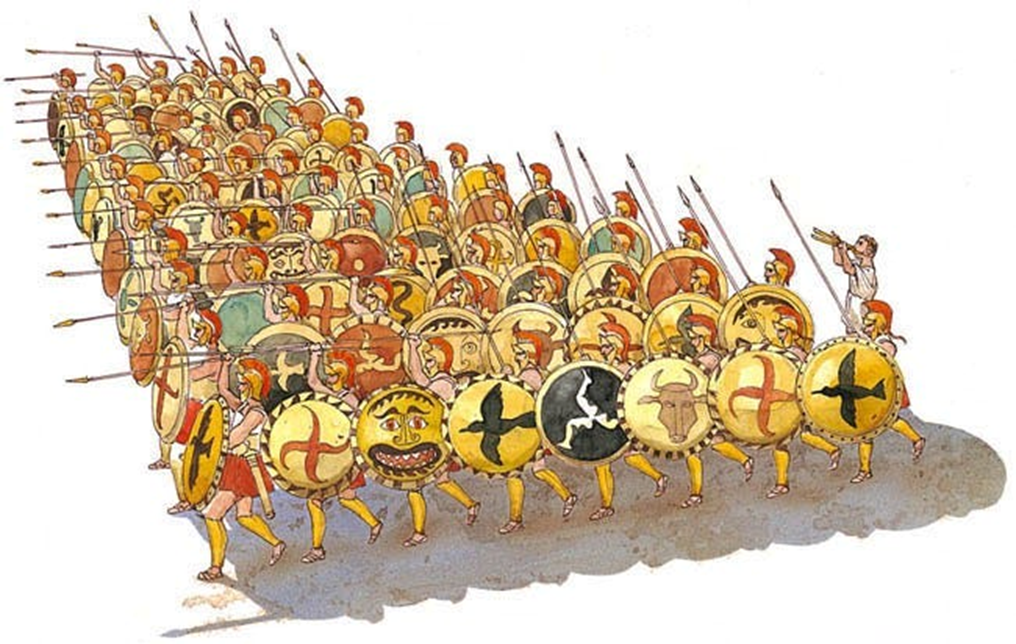
phalanx. close-knit hoplite formation that were used in many battles. There was little variation until Philip II. varied in depth. shields meant to protect oneself and the person next to you. the strongest phalanx was placed on the right.
Herodotus, Histories
main source for Greco-Persian wars
Writes about the hubris of Xerxes in relation to his inevitable fall, soldiers are ordered to whip the sea and throw fetters into it.
Xerxes wanted to strike fear in the Greeks and show Persian might
Battle of Marathon
Although greatly outnumbered, Athenians are victorious. Main phalanx draw Persians in and surround them. Herodotus notes that their method of running towards the Persian was unnusual.
Battle of Thermopylae
battle with the narrow passage, led by Leonidas of Sparta with many other Greek forces. Despite success, Greece now open for invasion
Battle of Salamis
Athens had been sacked and burned but finance creation of more triremes, lure Persian ships towards Salamis and destroy them.
Xerxes
Leads second invasion. Returns to Persia after Battle of Salamis
hubris as explained by Herodotus
Pentekontaetia
50 years of peace following the end of the Greco-Persian wars
herodotus no longer writing
Sparta separates from alliance
Delian League is formed
Delian League
Thucydides - talks about purpose
known also as Athenian Alliance
members must pay tribute of triremes or tribute, lists kept of tribute. money originally kept on island of Delos
Kimon
Leads fleet of Delian League ships into Asia Minor and Egypt
Athenian leader who was ostracized after sending hoplites to assist with helot rebellion and being rejected by the Spartans.
returns from exile during First Peloponnesian War and negotiates peace (30-year truce)
Pericles
Makes allies with Sparta’s enemies
moves treasury to Athens, only tribute accepted
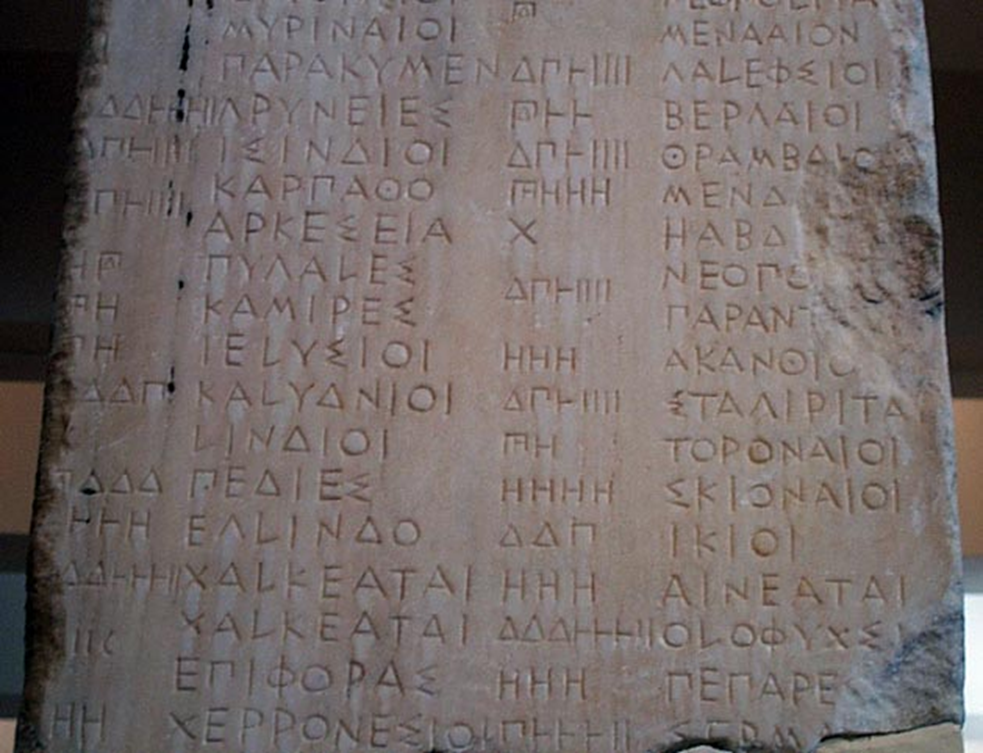
Athenian epigraphy or tribute list.

A Tholos, the most popular one being the prytaneion
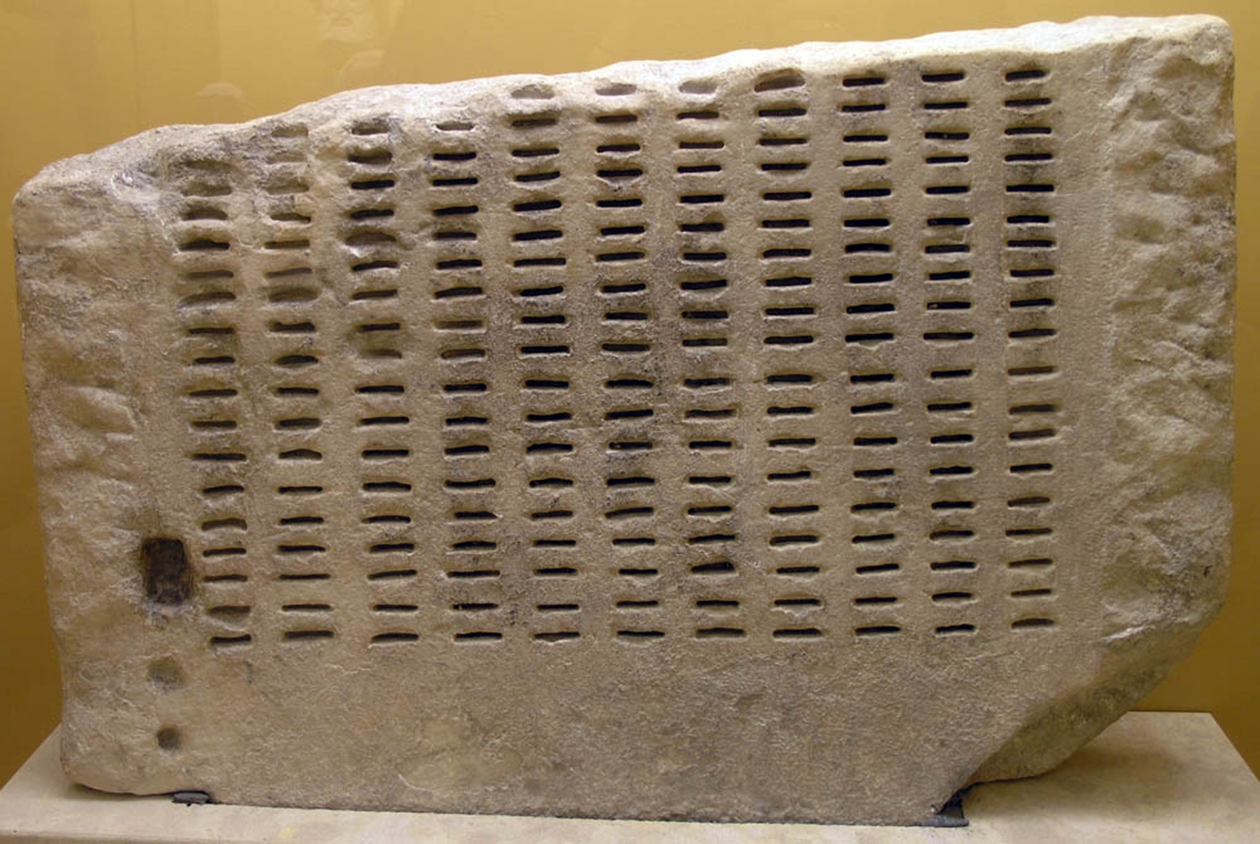
Kleroterion.
Archons and generals
bv dcs
Ekklesia
Boule
Dikasteria
Athenian citizenship